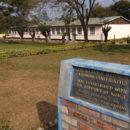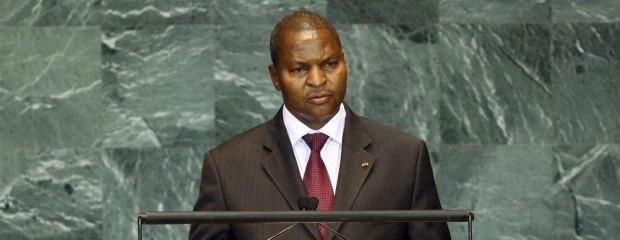Crisis in the Sahel: after Mali what next? – By Ahmedou ould Abdallah, Centre4s


Rebels fighters in pick-up trucks are directing current developments in Mali - a dangerous situation for the wider Sahel.
Over the last few years a crisis has been brewing in the whole of the Sahel, not only in Mali. All the ingredients for an explosion where there: poorly or ungoverned vast territories, lack of effective governance, pervasive corruption, traffic and trafficking in drugs and cigarettes, irregular migrations and armed islamist radicals. At the epicentre of the Sahel crisis is Mali. Its neighbours are, however, not immune from the contagion.
The fall of Mali
A few weeks before the end of his second and final term, Mali’s elected President, Amadou T. Touré was forced to resign and flee his country. Mali has, in stages, been breaking up: an intense traffics in drugs, an irredentist Tuareg rebellion, a military coup by Non Commissioned Officers, the fall of the northern part of the country under the control of various groups: the Islamists of AQIM, their allies of Ansar Dine and MUJAO. The MLNA, which launched the rebellion in January, has now been overtaken, while Arabs, Fulani and Songhai try hard to regroup.
By now, the Islamists have settled in cities such as Gao, Kidal and Timbuktu where they are getting organised and control three international airports – most useful for bringing in combatants, arms and drugs. In Nigeria, Boko Haram, a sister organization of AQIM (al Qaeda in the Islamic Mahgreb), relentlessly pursues its deadly targeted attacks. Sleeper cells in other countries throughout the region are, by definition, invisible.
Today, with these events unfolding, it is no longer possible to ignore the threat of the Malian crisis on the future of that country and on the whole Sahel. Beyond Mali, the question is which country is the next in line?
Settling the crisis
Time favours the rebel groups. Presently, the threat on stability is not in the north of Mali, but in the capital, Bamako – where the central government is facing daunting challenges. Firstly, its legality is contested.
Second, the whole military and security apparatus are weakened and challenged due to their defeat by the rebels and to internal strife between various elite units: Green Berets against Red Berets.
Third, the Junta is struggling to survive in a difficult context – its rejection by a majority of the civilian population, and the sanctions applied on the regime by ECOWAS. In addition, a large number of Malian IDPs and refugees have resulted from the crisis, an embarrassment to the country, and a burden to regional governments.
Finally, in this volatile context, West African warlords and their associates – orphans from crises since the end of Sierra Leone, Liberia and Cote d’Ivoire civil wars – are preparing for a lucrative new adventure in Mali. They will not let such an opportunity go to waste.
As usual in the region, Malians and a few observers blame the current crisis on foreign actors or interests, and not on failed national policies and blatant corruption. That classical justification of political failure cannot, however, help resolve present problems. Today, the priority is to establish a unity government, and make it as representative as possible of all segments of the population. The country urgently needs to restructure its army, to repair its unity, and to restore its morale. All will require time and money.
Finally, the economy of this landlocked country cannot keep being held hostage to both the power struggle at national level and the consequences of international sanctions. Therefore, Bamako should play the best card it still holds: negotiation with the rebels.
The risks of Regional Rivalries
The restoration of stability in Mali will be best served through regional diplomatic action. That action could be undertaken in consultation with ECOWAS and Mali’s neighbours, and in cooperation with countries interested or concerned by the crisis. This approach would help avoid an early internationalization, the corollary of which could be a crisis of terrorism on a global scale. Indeed, drug traffickers, already present in the region; have been for a long time operating in several continents.
Moreover, internationalization often feeds suspicion or competition between the sub-regional powers, often for the benefit of local belligerents and, in the longer term, it becomes detrimental to all concerned states. Faced with such a pressing danger, it would be better for the major countries in the Sahel-Sahara to take different actions than, for example, Afghanistan, Yemen or Somalia’s neighbours have done when faced by similar insecurity. They should move decisively and collectively to resolve the Malian crisis as soon as possible and, with it, all other conflicts that may undermine the region.
Without the will for a urgent action by the three or four regional powers, in strong cooperation with their neighbours, there is concern that the management of the Sahel will escape national governments and remain, for the foreseeable future, a problem on the international scene.
In reality, each nation, especially in the Sahel, is a project continuously under construction. Mali’s neighbours must work hard if they want to be immune from a contagion that might otherwise become inevitable.
Ahmedou ould Abadallah is President of the Centre for Strategies and Security for the Sahel Sahara. He is a former senior official at the United Nations.







[…] https://africanarguments.org/2012/07/16/crisis-in-the-sahel-after-mali-what-next-by-ahmedou-ould-abad… […]
Does Civil Resistance Work?—The Imbroglio the Country Mali is confronting.
My contention is that nonviolent campaigns have a participation advantage over violent insurgencies, which is a crucial factor in determining outcomes. The moral, the physical commitment and social media informational barriers to participation are much lower for nonviolent resistance than for violent insurgency. Nonviolent resistance movements create much more durable and internally peaceful democracies than transitions provoked by violent insurgencies. Nonviolent resistance campaigns are more effective in getting results and, once they have succeeded, more likely to establish democratic regimes with a lower probability of a relapse into civil war. However, I am of the opinion that nonviolent campaigns fail to achieve their objectives when they are unable to overcome the challenge of participation, when they fail to recruit a robust, diverse and broad based membership that can erode the power base of the opposition adversary and maintain resilience in the face of repression. However, a peaceful successful post war society requires basic fundamental civil institutions by which to establish, create and enforce the ‘rule of law’ and to provide basic essential goods and services to the people.
Monte McMurchy